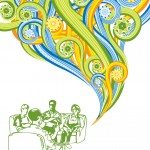
This review of literature set out to explore the issues relating to families relinquishing the support of their family member with learning disabilities, often at a point of crisis. The review looked at situations where the family member is placed by disability services in respite care until suitable permanent accommodation can be organised or indeed, [read the full story…]






